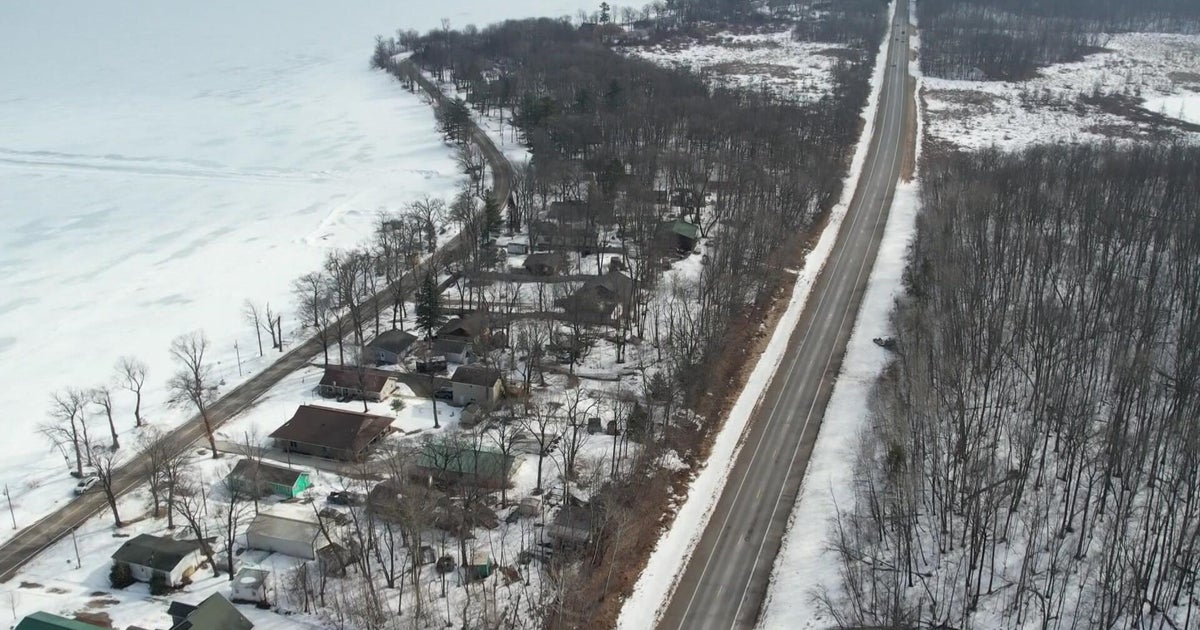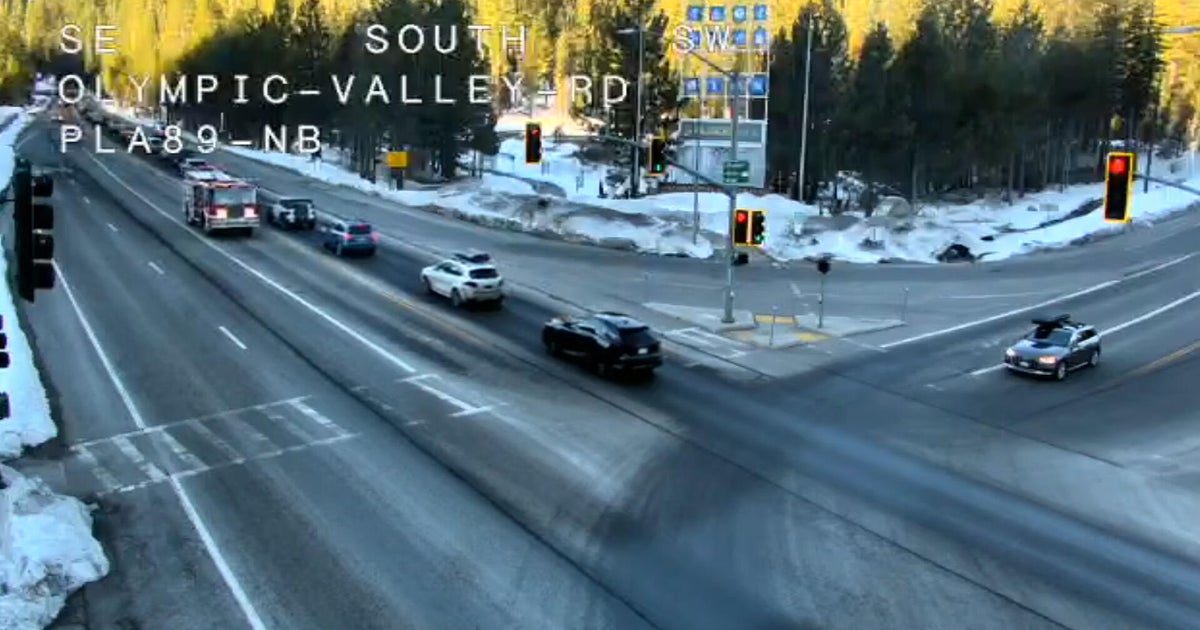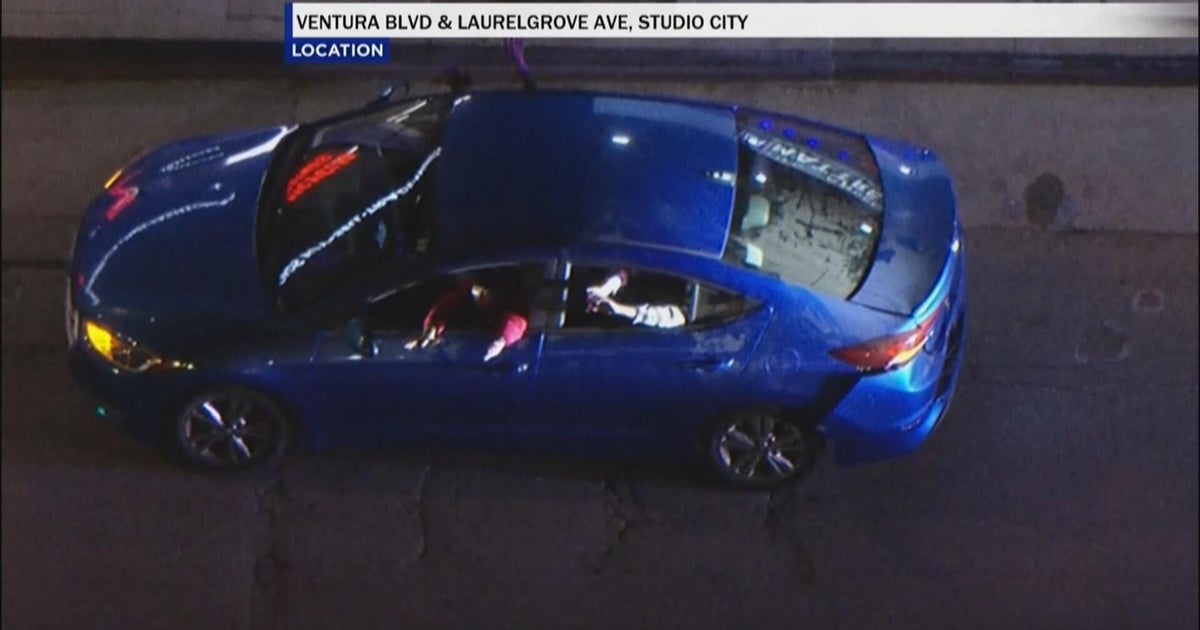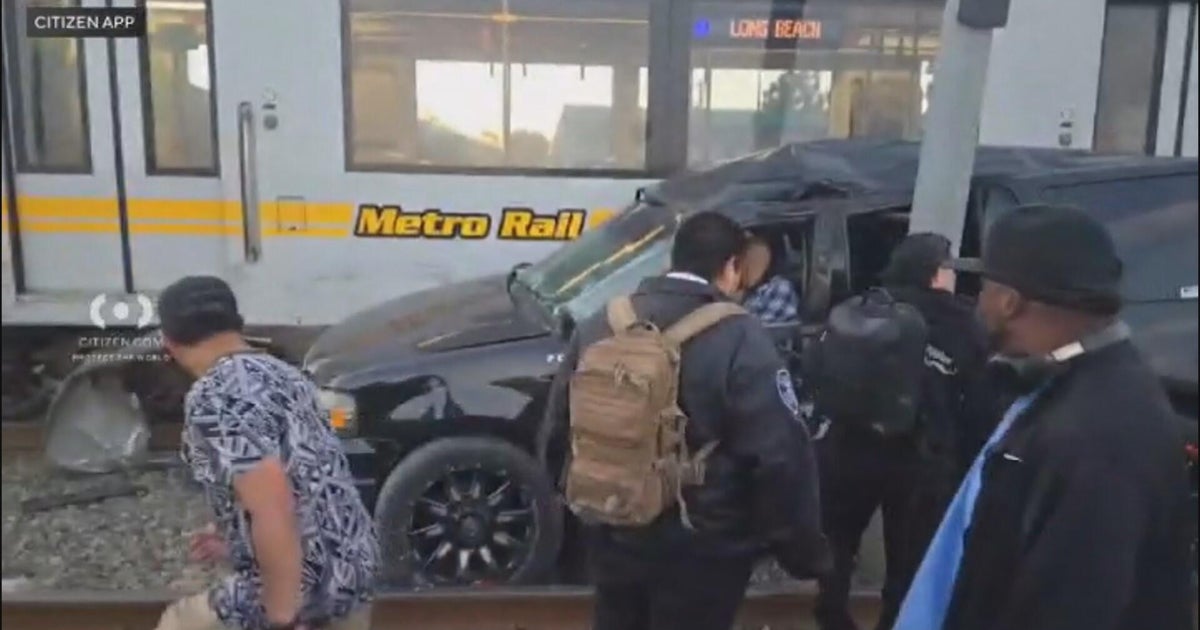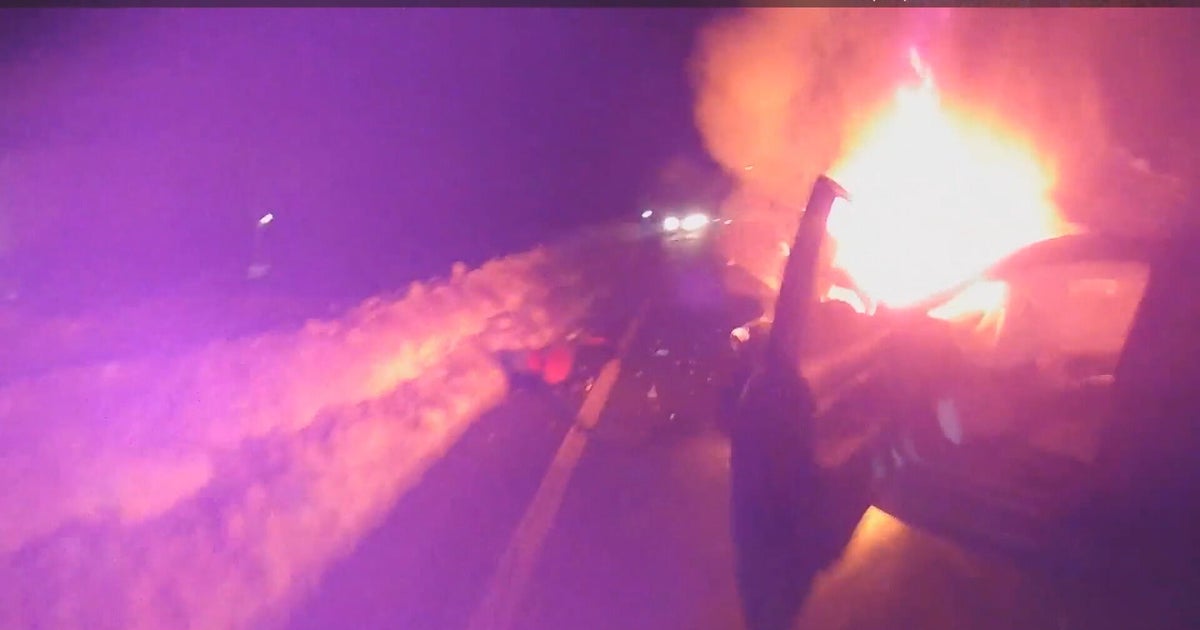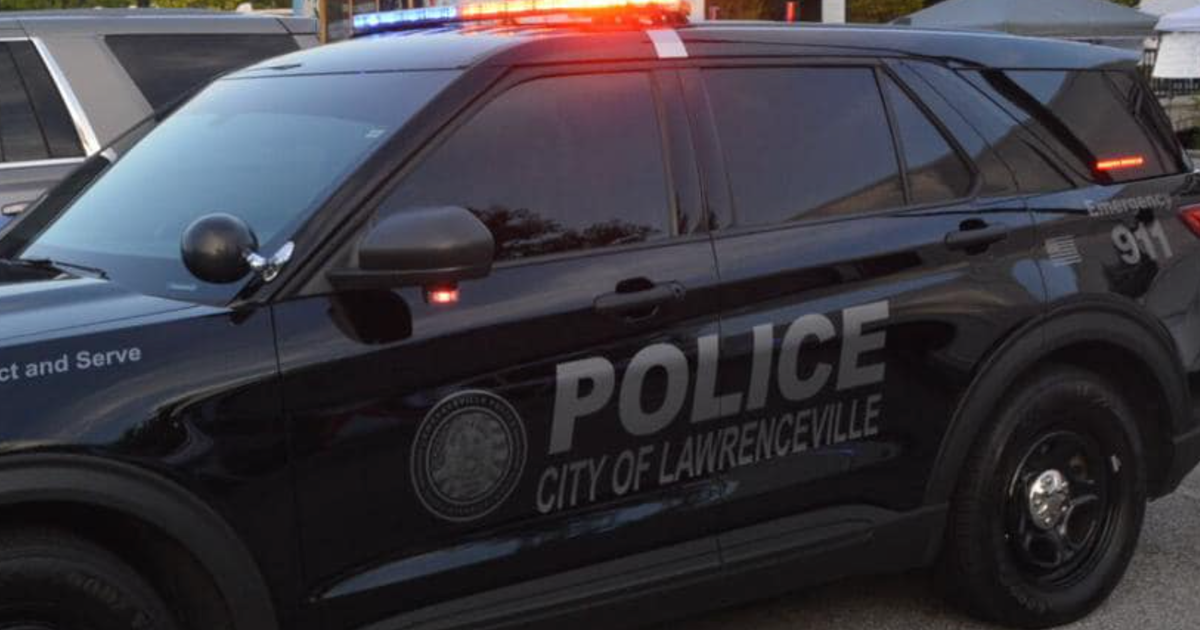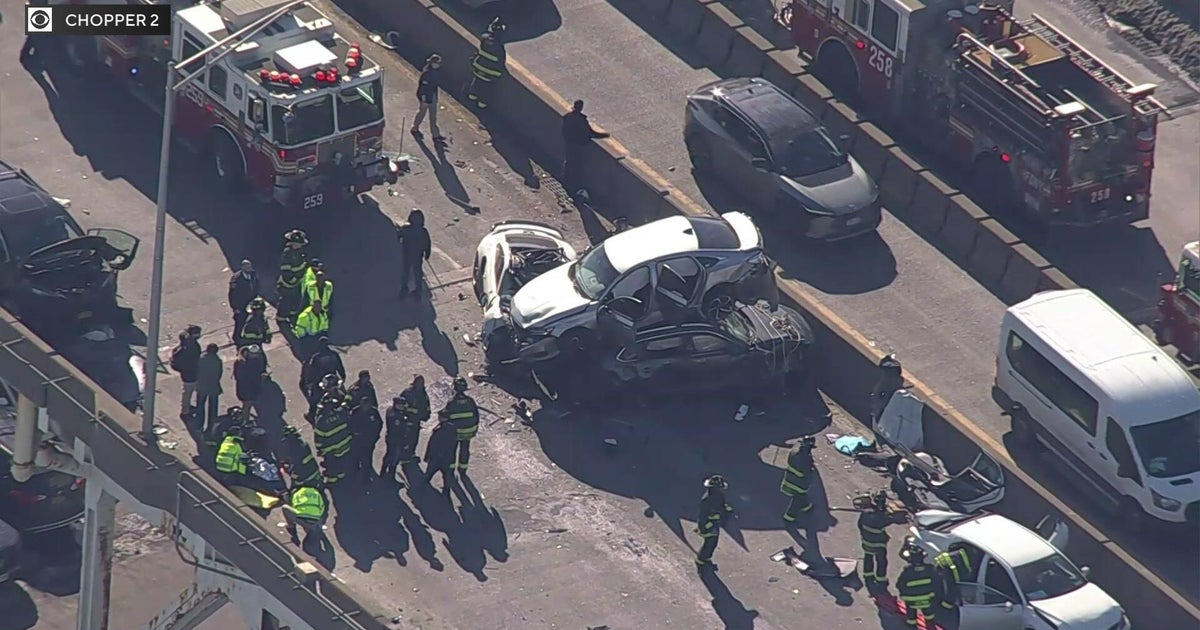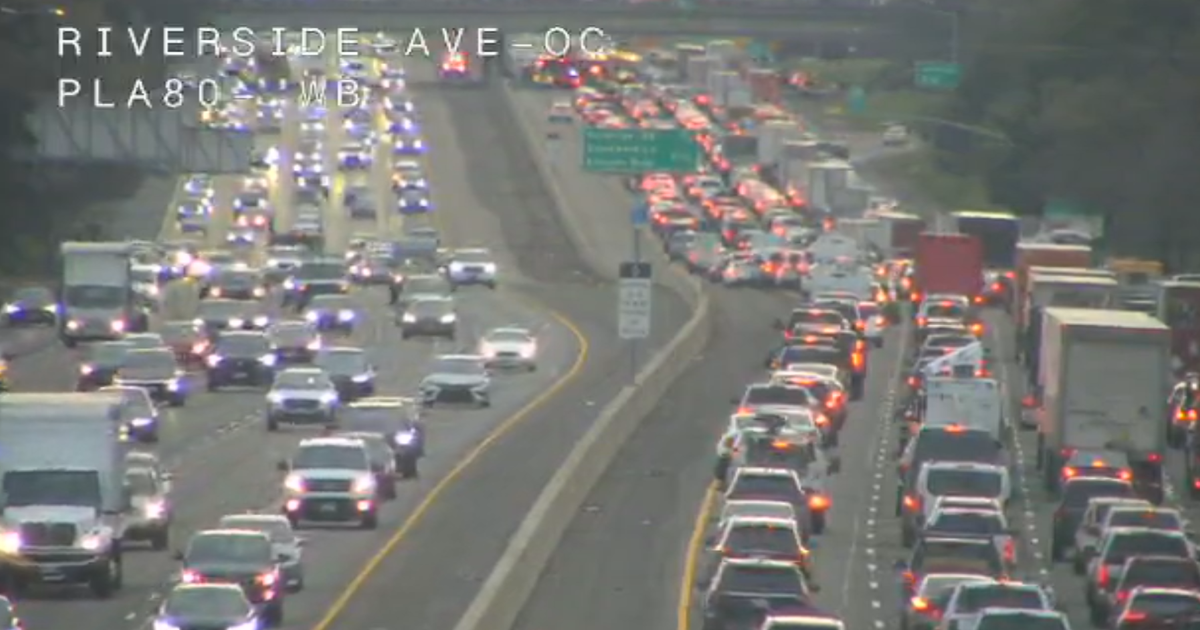Bear Dies After Collision With Car In Lino Lakes
LINO LAKES, Minn. (WCCO) -- For the second day in a row a black bear has wandered into a populated area. This time the bear was spotted in Lino Lakes running out of a ditch and into the path of a car.
It happened around 10:30 p.m. Monday night on Otter Lake Road. The bear did not survive the crash.
The driver of the car, Chris Jordan, was about four blocks from his home in Lino Lakes when a 200-pound black bear came out of nowhere.
His sister and her boyfriend were in the car with him. Everyone in the car was fine but the bear was not. And he's not the first bear to be struck and killed by a car.
The bear was running and almost cleared the car. It hit the front left side, knocking out the headlight and damaging the grill and hood.
The 200-pound bear died instantly. But it's not that uncommon, at least lately.
"We usually have about one or two a year," said Brian Lueth of the Department of Natural Resources. "We've had just a bit of a spike with maybe three or so in the last month."
A bear was killed on the freeway north of North Branch two weeks ago, another black bear died when he was hit west of Wyoming last week and now a black bear in Lino Lakes.
"We have resident bears here in north Washington and Anoka County," Lueth said.
He said people now live in what has always been bear territory and homeowners need to be careful not to attract them to their property.
"We often hear of reports of bears in backyards eating bird seed and that's our main message -- if you don't want to attract a bear to your yard, think twice about feeding birds," Lueth said.
He said bears wander into neighborhoods for a reason.
"This time of year, the female is entering the breeding season, the males are either drawn away or they move away on their own and then we have what I would call teenage bears on the landscape, looking for their place in the world," he said.
The Wildlife Science Center has four black bears -- Ethel is about the size of the latest black bear to be hit and killed by a car.
The carcass was brought to the center and used for educational purposes, as well as for food for the wolves and mountain lions who call the Wildlife Science Center home.
The DNR wants you to remember that if you choose to feed wildlife like birds you might end up with wildlife in your backyard.
Remember black bears are attracted to high-calorie foods -- they'll look for your pet's food, bird seed or even the grease left behind from your barbeque.
